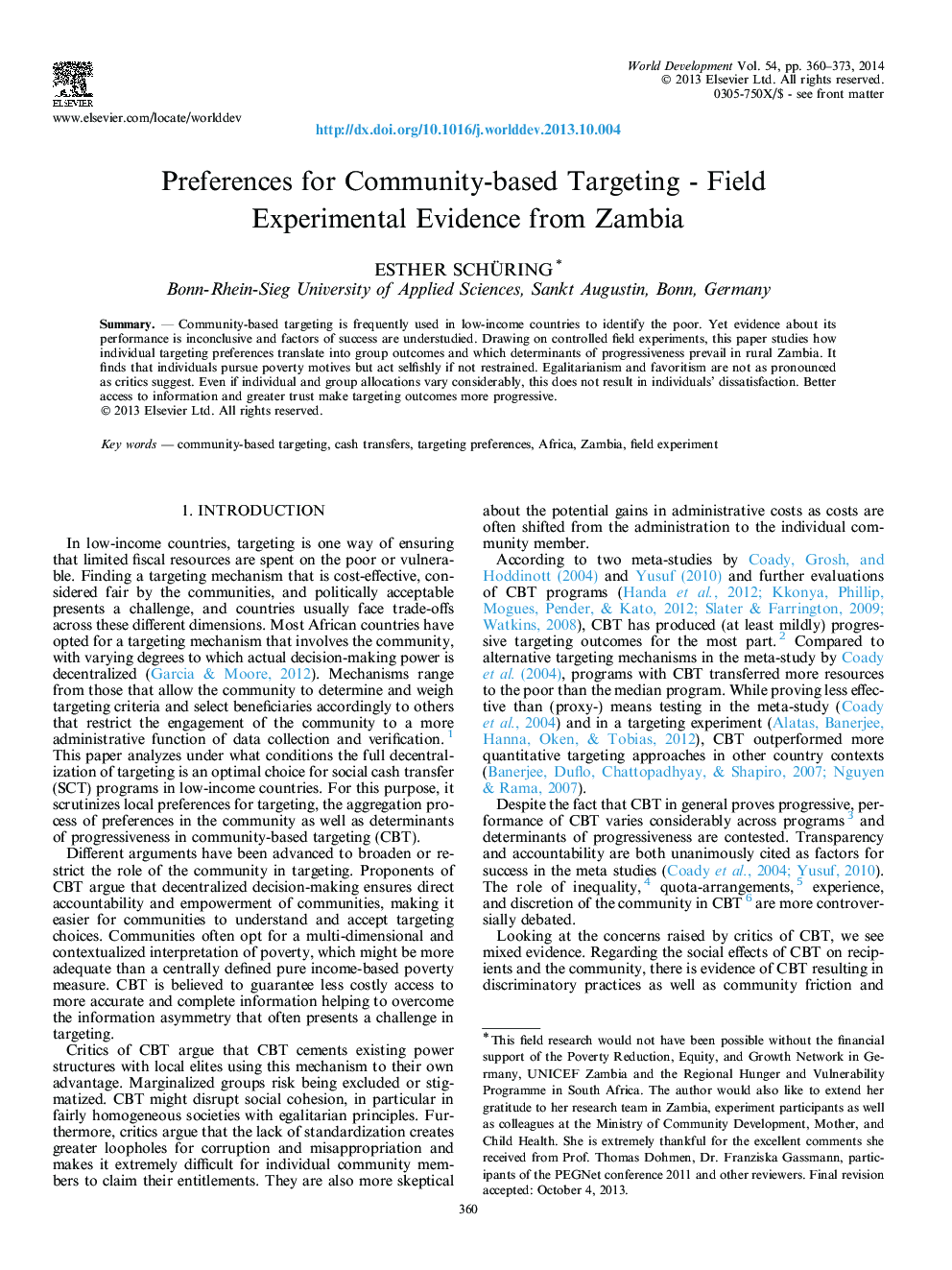| Article ID | Journal | Published Year | Pages | File Type |
|---|---|---|---|---|
| 7395294 | World Development | 2014 | 14 Pages |
Abstract
Community-based targeting is frequently used in low-income countries to identify the poor. Yet evidence about its performance is inconclusive and factors of success are understudied. Drawing on controlled field experiments, this paper studies how individual targeting preferences translate into group outcomes and which determinants of progressiveness prevail in rural Zambia. It finds that individuals pursue poverty motives but act selfishly if not restrained. Egalitarianism and favoritism are not as pronounced as critics suggest. Even if individual and group allocations vary considerably, this does not result in individuals' dissatisfaction. Better access to information and greater trust make targeting outcomes more progressive.
Related Topics
Social Sciences and Humanities
Economics, Econometrics and Finance
Economics and Econometrics
Authors
Esther Schüring,
